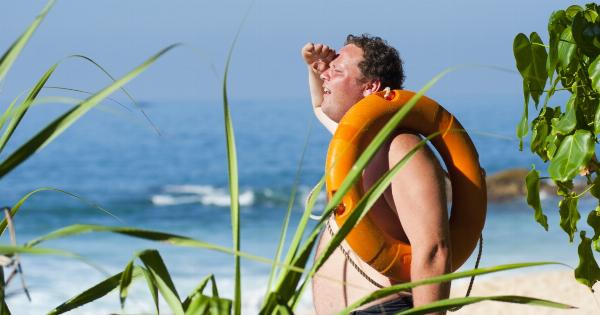Water is an essential component of the human body, and it plays a crucial role in regulating many bodily functions. Without water, the body cannot perform its essential functions, and dehydration can set in, leading to serious health complications.
In this article, we’ll explore how long humans can survive without water and the various factors that determine the length of survival.
Factors That Affect Survival Time without Water
Several factors can influence how long a person can survive without water. These factors include:.
Age
The age of a person plays a crucial role in determining how long they can survive without water. Children and the elderly are especially vulnerable to dehydration and can suffer adverse health effects much more quickly than healthy adults.
Activity Level
The level of physical activity a person engages in can also significantly affect their survival time without water.
Individuals engaging in strenuous activities, like athletics and heavy manual labor, may become dehydrated more quickly than sedentary individuals.
Environmental Conditions
The environment in which a person finds themselves can also significantly impact their survival time without water.
For example, individuals in hot, arid climates are likely to become dehydrated more quickly than those in cooler, more temperate climates.
Body Composition
The composition of a person’s body can also impact their survival time without water. Individuals with a high body fat percentage may be able to survive longer without water than those with less body fat.
How Long Can Humans Survive Without Water?
The amount of time a person can survive without water varies significantly and is influenced by a variety of factors. However, some general guidelines can be established.
Healthy adults can typically survive for up to three to five days without water. However, this is a highly individualized estimation and may vary depending on individual factors like age, activity level, and body composition.
Individuals in the best physical condition may be able to survive without water for up to a week or more.
Children and the elderly, on the other hand, are much more susceptible to dehydration and can experience serious health complications within just one to two days without water.
Individuals in survival situations may be able to extend their survival time without water by taking some basic steps like seeking shade, reducing physical activity, and seeking out water sources like rivers, streams, and groundwater.
Signs and Symptoms of Dehydration
Dehydration can be a serious condition that can lead to a range of health complications, including organ failure and death. As the body loses water, it begins to exhibit a range of signs and symptoms. Some of the common symptoms of dehydration include:.
- Dry mouth and throat
- Feeling thirsty
- Dark urine
- Headache
- Confusion
- Difficulty concentrating
- Dizziness or lightheadedness
As dehydration progresses, more severe symptoms may begin to appear. These symptoms may include:.
- Rapid heartbeat
- Rapid breathing
- Fever
- Seizures
- Loss of consciousness
- Shock
Preventing Dehydration
The best way to prevent dehydration is by drinking plenty of water throughout the day. Experts recommend that individuals drink at least eight glasses of water per day to ensure proper hydration.
In addition to drinking water, individuals can also maintain proper hydration by:.
- Avoiding high-sugar, high-caffeine, and alcoholic drinks
- Eating foods with high water content, like fruits and vegetables
- Wearing light-colored and loose-fitting clothing in hot weather
- Minimizing physical activity during the hottest parts of the day
Conclusion
Water is an essential component of the human body, and it plays a critical role in regulating bodily functions.
Humans can typically survive for three to five days without water, though the length of survival can vary depending on individual factors like age, activity level, and body composition. Dehydration can cause a range of health complications, and it is important to drink plenty of water throughout the day to maintain proper hydration.































